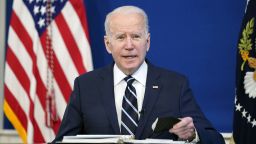President Joe Biden spotted Rep. Sean Patrick Maloney on the White House campus last June and called out to the House Democratic campaign chair loudly enough for several others to hear: “I really want to talk to you about the races!” he shouted.?
?A week later, at the cherry festival in Traverse City, Michigan, Biden leaned into Sen. Gary Peters, who’s in charge of Democratic Senate campaigns, with the same promise. He’s always cared most about Senate races, Biden told the Michigan Democrat,?and he wanted to have a meeting, an hour at least, to talk about helping his party hold the chamber in 2022.
Maloney’s staff eagerly followed up. So did Peters’. Then they followed up again. And again. Seven months later, there are still no meetings on the books.?
They’re not the only ones who’ve been left waiting. In three dozen exclusive interviews with CNN, top Democratic politicians, campaign officials and operatives say the White House political operation is heading into the midterms unprepared and unresponsive even to basic requests for help or information.
Biden advisers say that the President talks politics with House Speaker Nancy Pelosi and Senate Majority Leader Chuck Schumer, but people familiar with both leaders say any campaign talk has been brief, and Democratic leaders have significant concerns with the White House’s approach to getting the President to break through. It’s not just that Biden’s approval ratings have?tumbled. Those in charge of keeping Democrats in power doubt that Biden’s team understands how to improve his political fate – and with it, theirs.
“It’s hard for me to believe that the?President knows how little his political shop is doing to support Democratic majorities in the Senate and the House. All of us believe that the President would be shocked to learn how little the White House political team is doing,” said one senior Democratic elected official in Washington, voicing widespread worries about the midterms. “We just know Joe Biden, and we know how much he cares about this stuff.”?

Senior Democrats, including some White House aides, describe a West Wing lacking both a political strategy and the discipline to execute one. Focus groups are giving party operatives nightmares. Biden is coming across as old and absent, they say. Real and perceived fumbles play into deep fears that he’s not up to the job and that Democrats are incompetent. Few Americans can say what was in the massive bills he’s signed, though many have heard about Democratic infighting and failure in what he hasn’t signed.
“What is the plan to fix that?” asked one operative in touch with the White House. “They can’t tell us what they’re talking about next week.”?
?Though most Democrats in power believe there’s still ample time for a turnaround, several top operatives are already talking triage. They’re fearful of discussing all of this publicly because they don’t want to create more problems. But privately, they are petrified that a Republican majority would end Biden’s agenda and swamp them with endless investigations and subpoenas, promise impeachment and potentially endanger fair certification of the next presidential election. All this comes as former President Donald Trump has begun assembling a stricter political operation from Mar-a-Lago, aiming to use a strong presence and win record in 2022 to potentially bulldoze his way through 2024.
“It doesn’t strike me as they’re dealing with the politics with the urgency of what’s currently at stake,” said one high-level operative working on House campaigns.
White House aides downplayed these complaints. The President has been more focused on addressing the pandemic and global economy than helping plot campaign strategy. They chalk much of the grumbling up to officials upset that they’re not getting everything they want, including Maloney’s unprecedented request last year for the Democratic National Committee to transfer $20 million to House Democrats’ campaign committee. (So far, $0 has been transferred). The Democratic Congressional Campaign Committee and Democratic Senatorial Campaign Committee declined to comment for this story.
Biden and his aides are currently in a natural shift to campaign mode, they argue, with one Biden adviser telling CNN the President and those in his orbit believe there’s ample time for his numbers to climb back to a strong position before November.
“History is against us, and we have work to do here,” the adviser said. “But I am not over-torqued by where we are, because we have the right story, we have the right person who can connect with people. …?We have to work harder, but we have the ingredients and the pieces.”?
Part of what’s happening, Democrats acknowledge, is that some of their colleagues are blaming Biden for all their political problems.
?“We haven’t talked about our accomplishments near enough. The accomplishments by definition will delineate who’s for what, and who’s not for what,” said Sen. Jon Tester, a Montana Democrat and former DSCC chair. “I point the finger at myself as much as everybody in the Senate, as much as everybody in the House, as much as everybody in the executive branch.”
The Biden adviser dismissed the worst poll numbers floating around and pointed out that Biden’s polling average is around 43%?– still a devastating number in the eyes of many Democrats.??
?“We want our numbers to get better, of course,” the adviser said. “But we have time.”

It’s how they’re using their time that worries people, though,?with less than nine months to go until the midterms.?In early December, Biden sent two very senior staffers – his communications director and his National Economic Council director – to the Hill to meet with the Democratic senators in charge of steering their caucus agenda. Kate Bedingfield and Brian Deese delivered a PowerPoint presentation, urging the lawmakers to craft a “Whose side are you on?” appeal to voters.
?Sens. Amy Klobuchar of Minnesota?and Debbie Stabenow of Michigan ripped into the White House suggestions. They wanted stronger contrasts, a clearer case. Senators in the room wanted Biden to call Republicans out as “shills” for corporate interests and blame them for endangering public health and the economy.?
?“This is not strong enough,” Stabenow told the White House delegation, according to several sources in the room.
?Bedingfield and Deese listened. “This is helpful feedback,” said Bedingfield.?
The White House followed up with updated talking points. The senators were left unconvinced that they’d been heard.
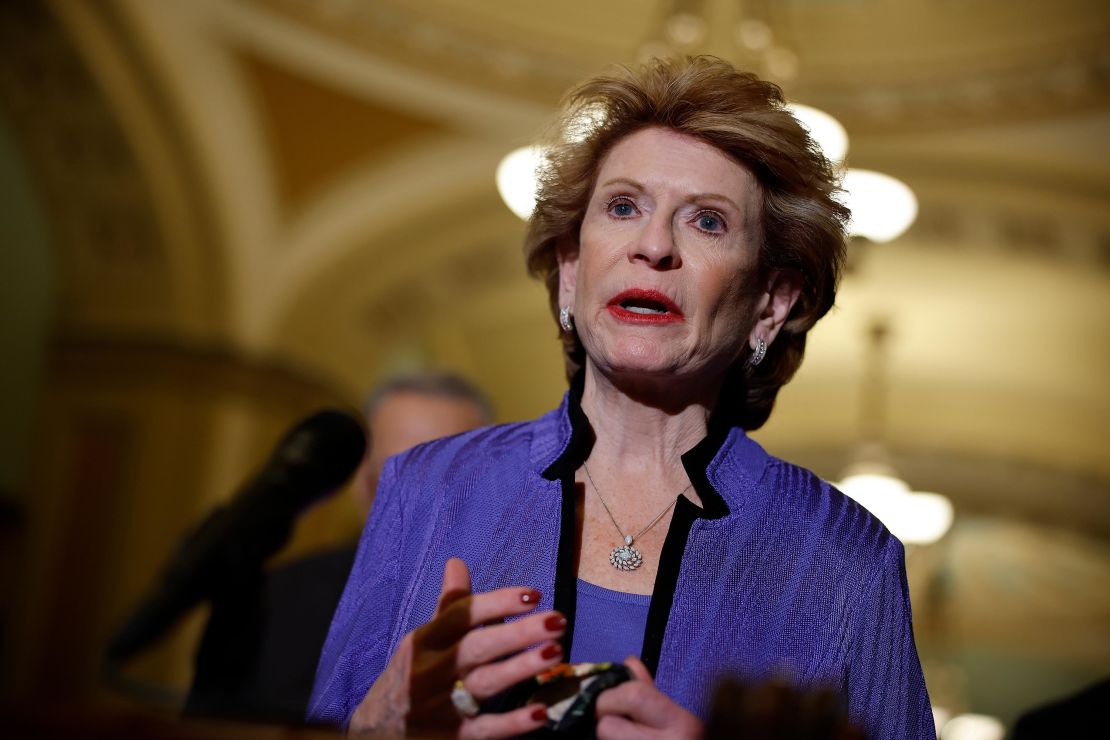
?‘Who is in charge? Who is running the thing?’
?Former President Barack Obama was infamous for never investing much in electing Democrats other than himself, whether heading into the 2010 midterms or the rest of his presidency – even housing a separate group that soon became his reelection campaign within the DNC. Trump’s political office, like the rest of that White House, subsisted on the whims of his Twitter feed.
Unlike either, Biden came into office telling his staff he wanted to prioritize building up the party and maximizing his connections to allies on Capitol Hill and beyond.
This isn’t how it’s played out. According to many in Congress, at the various Democratic campaign arms and others involved in Democratic politics, the Biden White House doesn’t have a clear point of contact for allies. There’s a White House political director, Emmy Ruiz, but insiders say she has never really been empowered with either the carrots or sticks that could make her, and the office, more effective externally – while some on her staff are viewed internally as more loyal to other Democratic causes than to Biden.? Jen O’Malley Dillon, who ran Biden’s general election campaign, now serves as the main conduit in the West Wing for political decisions, but many in touch with her complain of a bottleneck that slows responses, if they come at all.
?Steve Ricchetti, the trusted Biden aide who sits a few steps away from the Oval Office, is the official point person for conversations with Congress. But Cedric Richmond, director of public engagement, is doing a lot of the outreach to his former peers in the House.?
?“Who is in charge? Who is running the thing?” said one exasperated Democratic House member, requesting anonymity to speak candidly about their frustration.?
?Several who’ve known the President for years think that part of why Biden’s political operation isn’t like they’re used to – the constant check-ins, the promises of campaign appearances, the donors used to him grabbing their phones and calling their grandmothers – is that for so long, that operation essentially existed within his own head, even as vice president.
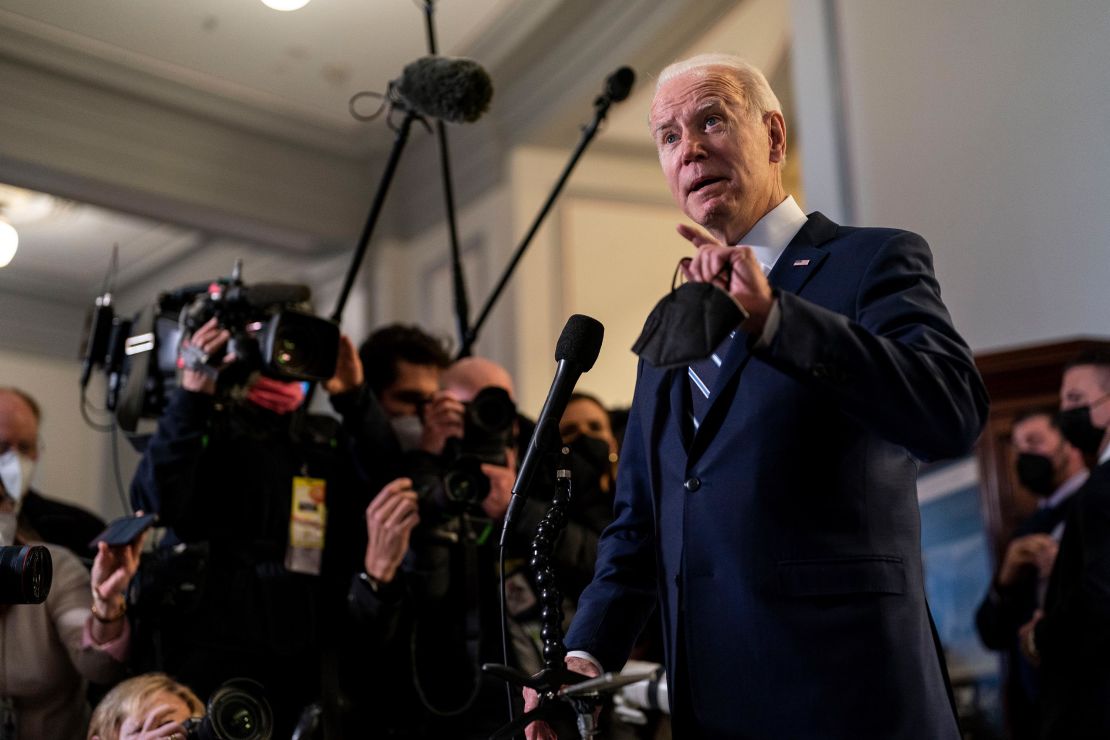
The Biden operation has taken a very different approach than Obama’s did to the DNC.?The?campaign turned over his email list at the beginning of last year, which has helped generate massive fundraising.?A DNC official tells CNN that emails signed by the President have raised $20.7 million.?The campaign also gave the DNC control of the @JoeBiden and @KamalaHarris Twitter accounts, effective tools in amplifying the work of the administration.?There’s been a bus tour, billboards, TV ads, and an “America is Back” ice cream truck escapade.
Building Back Together, the independent group that Biden allies started in an effort to avoid a repeat of 2010, when Democrats felt abandoned by Obama ahead of the midterms, has spent over $30 million promoting Biden’s agenda and providing cover to many Democrats who complain of being left out in the cold. A spokesperson for the group said to expect “doubling down on these investments” over the course of 2022.?
?But without a centralized system at work outside Biden’s own brain, the politics are coming off a bit scatter-shot. Other high-level Democratic leaders in the House and Senate tell CNN they often hear conflicting messages from different contacts in the White House – if they hear anything at all. And what they do hear can be insulting. House Democrats have been?anxious about the state of the?party’s agenda, but when Bedingfield met with them last month to talk about messaging Build Back Better and acknowledged the many concerns raised, several walked out still feeling forlorn.
“They didn’t hear what members are feeling,” one member of Congress said. “They’re not hearing what members are doing.”?
The revised talking points that the White House wrote and sent out following the meetings with Senate and House Democrats didn’t put concerns like that to rest. The various Democratic campaign operations have received almost no commitments to fundraising events, multiple sources familiar with the planning tell CNN, and not nearly as many as they wanted over 2021. They feel like not enough attention is being paid to prioritizing endangered Democrats in minor ways, like their placement in the photos at bill signings, and in more significant ways, like which districts the President travels to for events.
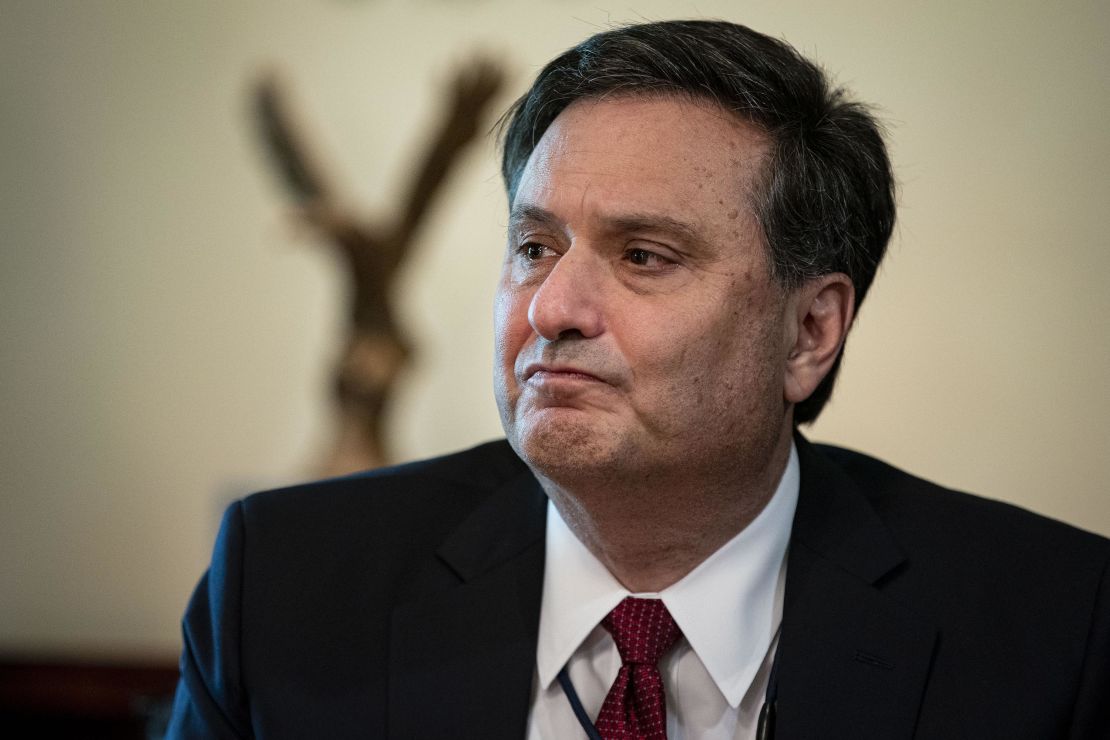
They can’t get the White House to lean on local Democratic officials to push back against political maps gerrymandered against their interests. Pleading memos written inside and outside the White House rarely get acknowledgments, let alone responses. Major donors don’t get their calls returned; some complained to CNN of being relegated to mid-level aides following up with their secretaries. And as even small commitments have proven impossible to nail down, frustration has curdled into bitterness.?
?“It’s not that we have been told no,” said one campaign aide. “It’s that we haven’t gotten an answer.”
The structure and orientation of the White House – and the decisions about how to press the President to use his time – are up to Ron Klain, the White House chief of staff, who is also often in contact with many members of Congress. When other White House aides or politically minded allies outside the building point to the struggles Biden is having, Klain often says they have a problem of “amplification,”?according to people familiar with the internal conversations. He tells people that Cabinet secretaries and other surrogates should be out there talking about the Biden agenda, and thus generating better news coverage.?
?This comes off to many as disconnected from the external and internal realities they’re facing.?Cabinet secretaries aren’t highly sought after for bookings, especially without news or interesting moments to highlight. Meanwhile, the White House counsel’s office has been hawkish in pressing against appearances that they fear could violate Hatch Act limitations on public servants and their political activity.
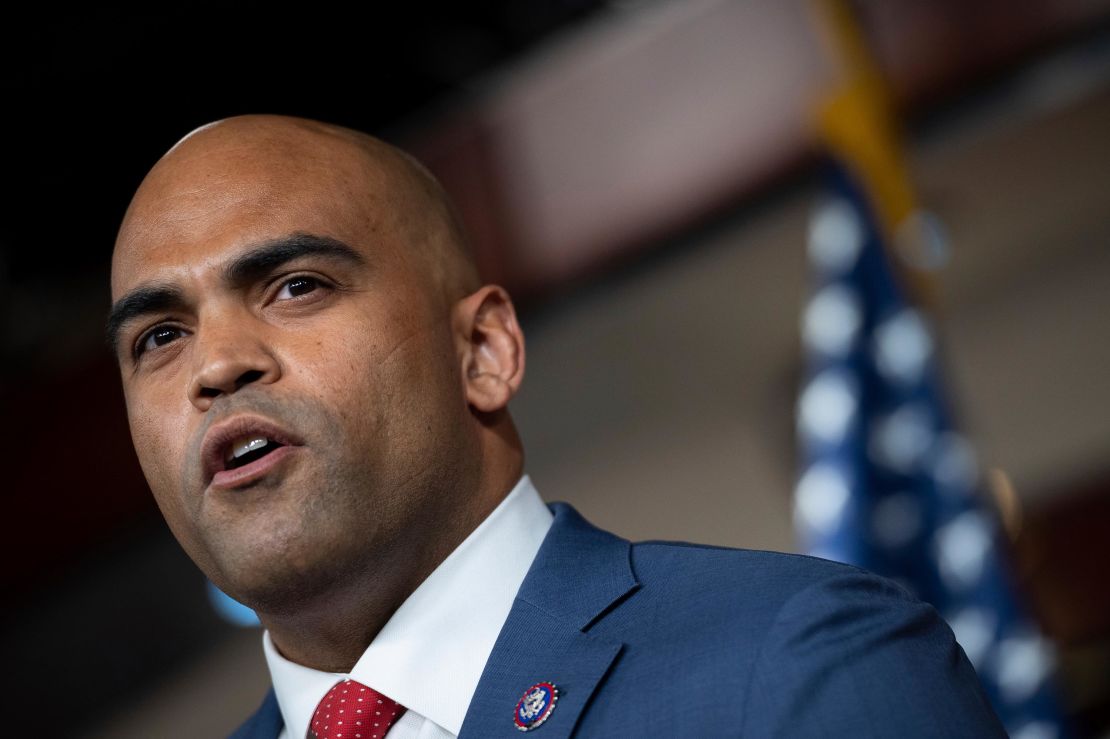
But Rep. Colin Allred, who won a battleground Texas seat in 2018, said he’s been pleased with the three Cabinet secretary visits he’s had. He attributes the despair among his colleagues to a combination of not having worked with a first-term White House – “There may be some different expectations of what that was going to be like than what the reality actually can deliver,” he said – and the “existential” fear Democrats feel with Republicans seeming to have the political upper hand heading into the midterm year.
Still, multiple White House aides and outside operatives told CNN of a frustrating lack of long-term political strategy,?from Klain or anyone else. Some days, they say, it feels like their work is defined by cable TV chyrons and topics trending on Twitter. This is exacerbated, several aides said, by Klain’s constant presence on Twitter. When the White House gets distracted by the controversy-of-the-day, some of them blame it on the Twitter fixation.?
Klain declined to speak to CNN, but a White House aide speaking on his behalf argued that what some are writing off as distraction is rather the reality of bouncing between constant crises and said that Klain’s “amplification” complaint reflects his belief that more voters would support Biden if they were hearing more of what the administration has been doing.
?A central complaint, according to several aides as well as operatives outside the building, is that Klain hasn’t pressed Biden to respond in more forceful ways. Besides a sharper organization, many Democrats want a bolder, looser Biden, out there defending his work rather than reading scripted remarks. Biden has given some in the building the sense that he’s afraid of making a mistake, asking for lots of?prep ahead of interviews and thus slowing the internal process. Meanwhile, White House aides have left outside allies feeling that they’re nervous that more speaking events could result in embarrassing stumbles.?
“What gaffe could you make to make things worse than 39%?” one operative asked, referring to the worst of Biden’s approval ratings.?
?At the moment, Biden is in a bind over the ongoing fight to pass voting rights legislation, a battle that core Democratic voters demanded but that, if he loses, could leave the base deflated, not to mention leave unchecked GOP efforts to restrict access to the vote in key battleground states. While many Democratic operatives and officials liked the bold rhetoric of his speech last week in Atlanta laying out the fight – much as they did the tone of his remarks on the anniversary of the US Capitol riot – they question getting so far into a fight knowing that two senators from his own party could so quickly sink it.
“Why are they driving hard at a loss on voting rights? Why do they make everything about the legislation?” asked another Democratic strategist in touch with the administration. “Go fight Republicans.”
Colorado Sen. Michael Bennet, who chaired the DSCC during the 2014 midterms and is up for reelection in the fall, said he’d like to see Biden lead a forceful “Whose side are you on?” argument that returns to the original pitch of paying for Build Back Better with measures like rolling back the Trump tax cuts.
“People are really, really grumpy. I’m grumpy too. I’m not grumpy about the White House not being involved on the political side of things. I’m grumpy because we haven’t been able to pass legislation that I think would be good for the country, and that we should be able to tell people about so that we can hold off a beginning of a return to Donald Trump,” Bennet said. “He’d be a lot better off and we would be having him spend his time out in the country talking to people than stuck in Washington talking to people about legislating.”
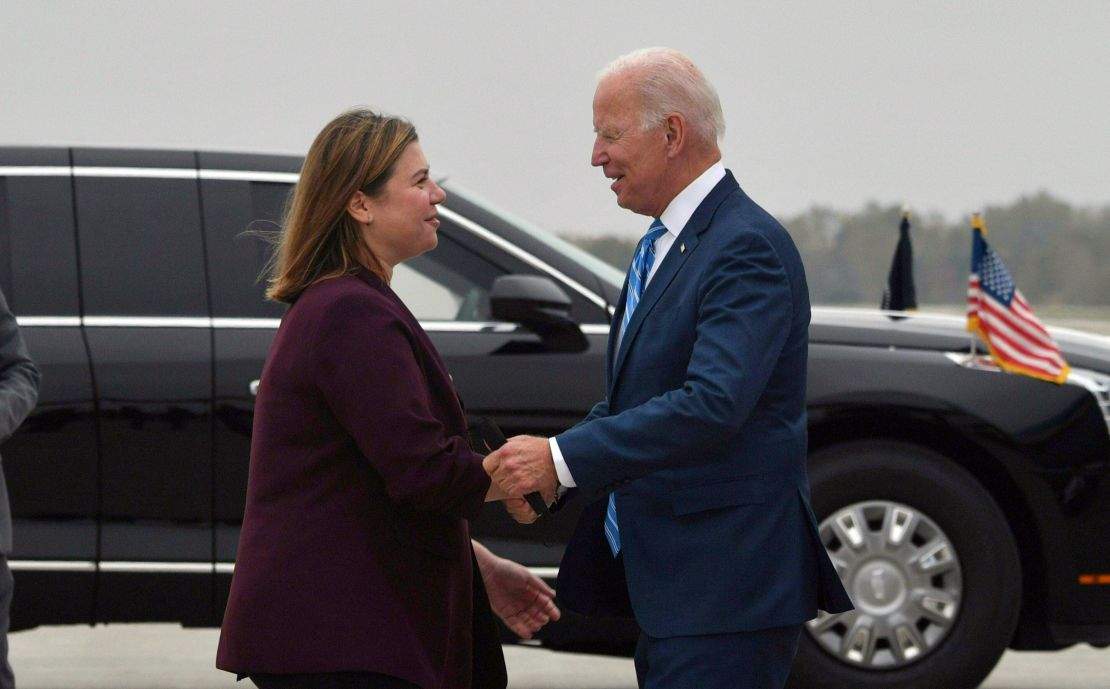
Biden’s posture of determination and strength is what people like, said a high-ranking Democratic official.?
“That’s why people voted for him,” the official said. “They felt like there was an assurance that things were going to get better. We need that strength. That strength needs to come from him and from across the party, that we know what the hell we’re doing, and we’re in it for you.”
?Despite his overall poll numbers, Biden still doesn’t draw the kind of animosity that made Obama and Trump so polarizing. “There’s 220 Democrats who would welcome Joe Biden to come to their districts,” said Rep. Pete Aguilar, a California Democrat and member of House leadership.
“The paradox of his poll numbers is that members of the Senate and House do not see him as a political liability when he shows up in person,” said the senior Democratic elected official, complaining that the White House operation isn’t utilizing Biden well. “The solution is more Joe Biden, not less.”?
?Biden senses the problem
?Biden knows he has a problem,?at least in terms of his public message. In meetings with staffers, he’ll occasionally remark on his poll numbers and express exasperation that his message isn’t breaking through.?
“Why is no one seeing it?” Biden will say,?according to a source privy to the conversations.?
?Lately, signs are popping up that the White House political operation is trying to do better. O’Malley Dillon hosted a call with Democratic governors’ staffs last week, suggesting ways they could help tout infrastructure projects?stemming from the bipartisan infrastructure law – one of Biden’s greatest accomplishments to date. She approved the first DCCC fundraising email to be signed by the President. Two days later, major DNC donors received an invitation to an upcoming call with Ricchetti.?

Internal White House memos prepared by multiple aides in recent months, and described to CNN, argue that Biden performs best when he’s talking off-the-cuff with people instead of delivering speeches. In these memos and conversations, aides and outside advisers suggest he show up more on social media and do small events around the country in living rooms and small businesses – maybe even some kind of consistent fireside chat, with the dogs wandering around in the background.
Some would love to have seen an Oval Office address, maximizing the bully pulpit power to push infrastructure or even voting rights. At the very least, they argue, the President and Democrats alike would be helped by making big speeches – like the daytime addresses on January 6 or voting rights – in primetime, when he would reach more people and have a better chance of breaking through.
?The President and many White House aides are pinning their hopes on voter patience: they expect the Omicron spike and the panic over the Covid-19 testing shortage to fade in the next few weeks, and that by the summer, America will be back on track to endemic times. There’s a renewed, if mostly whispered, confidence in the West Wing that parts of a scaled back Build Back Better bill can still pass. Roll that together with potential better economic news and an emboldened Trump creating renewed toxicity around Republicans, they say, and the national mood could be in a very different place by the time most swing voters make up their minds later this year.
“It’s been hard times for families with the pandemic and the challenges that that has brought. Folks will feel better when things in their world are going better,” said Rep. Suzan DelBene of Washington state, who chairs the moderate New Democrat Coalition, which includes many purple district members.

Getting people to credit Biden and the Democrats, if things do turn around, is the trick, say strategists.
“The case we have to make now is not, ‘Are you better off than you were?’ It’s, ‘Are you?getting?better?’” said Jesse Ferguson, a Democratic strategist who works extensively with polling data and political advertising and was a top official at the House Democrats’ campaign arm during the Obama years. “It’s not about how everything is hunky dory, but just that the country is getting up off the mat.”
?Noting all of the complaints, the Biden adviser promised the White House will do better.
“We’re in this next phase of the presidency and the midterms,” the adviser said. “We want no one to have complaints. But if that is the complaint, we will diminish that complaint, because that’s exactly what he’s going to be doing.”
?People have written off Biden before, like when his primary campaign was coming apart before his resounding win in South Carolina.?But this isn’t just about other Democrats’ political prospects: the states with the most competitive races this November also happen to be those that will decide the next presidential election.?
?“We look at this,” said the Biden adviser, “as building a foundation for ’24 by doing the work of ‘22.”?
CLARIFICATION: This story has been updated to clarify comments from Klobuchar.
Manu Raju contributed to this story.



